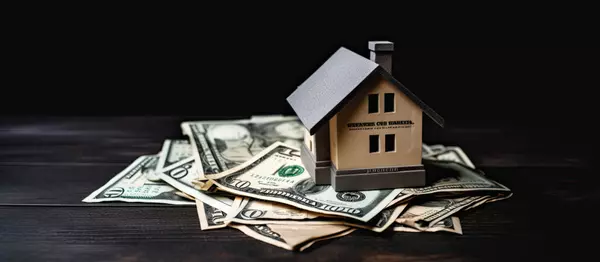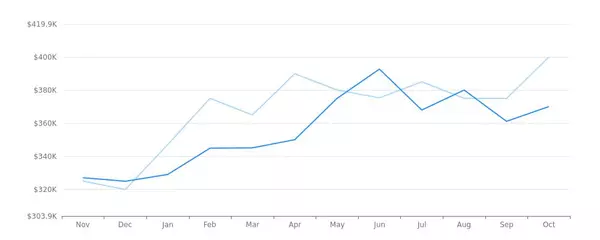Is Refinancing a Bad Idea?
The decision to refinance your home is not one to be taken lightly. Like any financial strategy, refinancing has its pros and cons, and it must align with your lifestyle and investment goals. Here's a closer look at what refinancing entails, its advantages and disadvantages, and when it might be a good or bad idea.
Refinancing is the process of replacing your existing mortgage with a new one, typically with better terms. This can mean a lower interest rate, a shorter loan term, or switching from an adjustable-rate to a fixed-rate loan. The goal is to reduce your monthly payments, pay off your mortgage faster, or tap into your home's equity.
Let's start with the pros. Refinancing often comes with lower interest rates, which can save you a significant amount in the long run. For instance, if you originally took out a 30-year loan at a 6% interest rate, and you refinance to a 4.5% rate, you could potentially save tens of thousands of dollars over the life of the loan.
Another pro is the possibility of shortening the term of your mortgage. If you've been dutifully paying off a 30-year mortgage and can now afford larger monthly payments, you might refinance to a 15-year mortgage. You'll pay off your home loan faster and save on interest— a double win!
Refinancing can also allow you to switch from an adjustable-rate mortgage (where the interest rate fluctuates) to a fixed-rate mortgage. With a fixed-rate mortgage, you're locked into a set interest rate for the life of the loan, which can simplify budgeting.
The ability to cash out some of your home equity is another advantage of refinancing. This essentially converts a portion of your home's value into cash, which you can use for home improvements, debt consolidation, or other expenses.
However, refinancing isn't suitable for everyone. The process of refinancing can be time-consuming and expensive. Closing costs for refinancing can range between 2% to 5% of the loan amount. You'll need to consider whether the potential savings outweigh these upfront costs.
Furthermore, refinancing to a shorter term mortgage or cashing out home equity will likely increase your monthly payments. This could be a con if you’re not financially prepared for higher monthly obligations. Refinancing can also extend your repayment period if you opt for a longer-term loan, which means you'll be in debt for a longer time.
Lastly, if your credit score has taken a dip since you took out your original mortgage, you might not qualify for a lower interest rate. In such a scenario, refinancing might not be in your best interest.
To sum up, refinancing your home can be a powerful financial tool, but it's not always the best move. It's crucial to consider your lifestyle, financial situation, and long-term investment goals. If you're unsure, consult with a financial advisor or mortgage professional to understand better if this strategy is right for you. Always remember, understanding your options and making informed decisions is the key to achieving financial success.
For more information, contact Shawn Wilmoth REALTOR®
ShawnWilmoth.com
Categories
- All Blogs (1000)
- Airbnb Realtor (13)
- Barndominium (6)
- Buying a home (57)
- California Buyers (17)
- Commercial Broker (2)
- Commercial Property (33)
- DR Horton Homes (5)
- East Tennessee (59)
- Experienced Realtor (40)
- Experienced Tennessee Realtor (67)
- For-Sale By Owner (24)
- FSBO (17)
- Gatlinburg (30)
- Gatlinburg Cabins for Sale (2)
- Gatlinburg Rental Homes for Sale (6)
- How to pick a realtor (14)
- Industrial Property (9)
- Invesment Real Estate Gatlinburg (4)
- Investment Property Realtor (27)
- Knoxville (66)
- Knoxville Jobs (1)
- Knoxville Zillow Reviews (1)
- Listing your home (30)
- Mobile Homes (7)
- Modular Homes (9)
- Morristown (28)
- Mortgage (3)
- New build homes (24)
- Price of Homes in Knoxville (10)
- Realtor Blog Feed (3)
- Reccomended Tennessee Realtor (48)
- Refinancing (2)
- Rental Property (7)
- Retail Building sites (4)
- Retail Land for Sale (3)
- Selling a home (19)
- Short-Term Rentals (2)
- Smithbuilt Homes (2)
- Strawberry Plains (1)
- Tennessee (39)
- Tennessee Lenders (3)
- tract homes (1)
- Vacant Commercial Land (4)
- Warehouse for Sale (1)
- Zillow Agent (1)
Recent Posts










GET MORE INFORMATION

Agent | License ID: 354366
308 N PETERS RD. STE 225, KNOXVILLE, TN, 37922, United States
